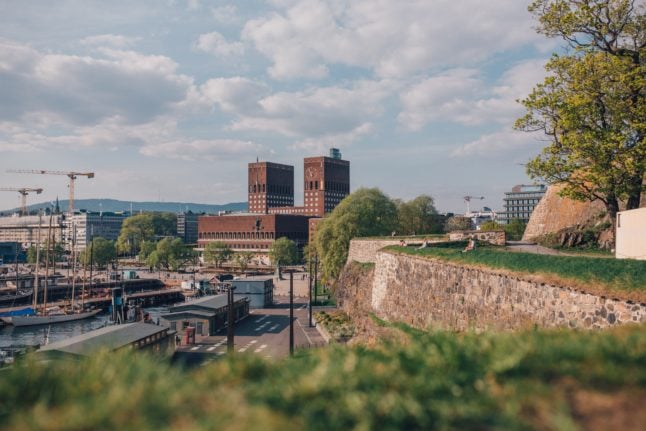The 33-year-old chancellor Sebastian Kurz says the unlikely coalition offers “the best of both worlds”.
Here are some of the main points of the government's 300-page programme.
Carbon neutral by 2040
The government is aiming to be carbon neutral — meaning greenhouse gas emissions are balanced with measures that absorb or eliminate carbon — by 2040, a decade ahead of the European Union's 2050 ambition
With this goal, the country of 8.8 million, wants to be a “forerunner” in Europe, the programme says.
Finland, Norway and Sweden have similarly declared their intentions to be carbon neutral before 2050.
Between 1990 and 2017, Austria together with five others were the only EU members who saw their greenhouse gas emissions continue to increase, while across the whole union they have fallen by 22 percent.
Over the same period, in the transportation sector alone emissions increased by 71 percent in Austria, according to Environment Ministry figures.
 (The new Austrian government. AFP)
(The new Austrian government. AFP)
Green transport and energy
While the Greens campaigned — along with environmentalists — for higher eco taxes to be introduced, such as in Germany and other EU members, the government programme makes no direct promise of that.
Instead, a task force will be set up to see how taxes can be “ecologised” from 2022.
The plan does, however, stipulate a tax of 12 euros ($13.40) on every plane ticket for both short and medium-distance flights, up from 3.50 euros and 7.50 euros respectively.
On the other hand, the government wants to introduce a yearly pass, costing three euros a day, to be used on public transport throughout the country, while also investing more in the sector.
Besides raising the percentage of bicycle usage from six percent currently to 13 percent, new taxis, rental cars and public cars should all run on clean energy.
The programme also spells out that all energy should come from renewable resources by 2030 and seeks to ban oil or coal heating in private homes and gas boilers in new construction.
Tax cuts and balanced budget
“Investment, for public transport or to protect the climate, will also stimulate the economy,” Kurz said, aiming to show that economic growth and fighting climate change can go hand-in-hand.
Economists stress, however, that balancing the budget could be difficult as besides green investments and no debts, Kurz also promised tax cuts as one of his main campaign pledges, besides fighting immigration.
Income and corporate tax cuts are planned.
“While solid growth will increase tax revenues somewhat, the new coalition has not provided a complete answer on how they plan to finance their fiscal plans,” Katharina Koenz of Oxford Economics said.
Immigration vs transparency
Kurz's People's Party (OeVP) appears to have imposed its policies on immigration and security without concessions. Meanwhile, the ecologists pushed to include a chapter on transparency in the programme.
The conservatives insist on two emblematic measures: extending the headscarf ban for school girls from 10 to 14 years and introducing a form of preventive detention for those judged a danger to society.
They also want to strengthen EU frontiers and see more border guards deployed.
However, the notion that Austrians be given preference over non-Austrians — a hallmark of Kurz's previous administration which cut social benefits for immigrants and stepped up deportations — has disappeared from the new programme.
After numerous scandals shook the country and even caused the previous government to collapse, the measures to improve transparency include strengthening the power of the Court of Audit and introducing a right of access to administrative documents.



 Please whitelist us to continue reading.
Please whitelist us to continue reading.
Member comments